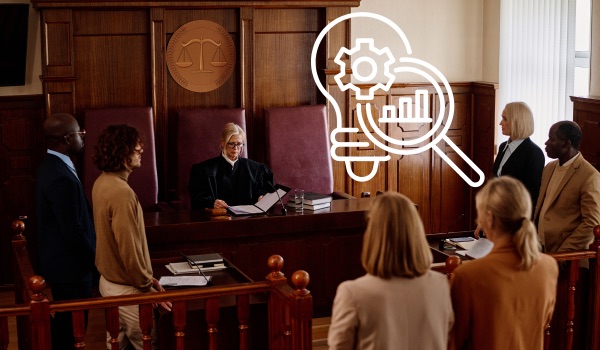Empowering Lawyers: How Emotional Insights Elevate Case Preparation
Why Gathering Emotional Data on Case Preparation Delivers Meaningful Insights
In the courtroom, facts and evidence are crucial, but they’re not the whole story. Emotion plays a significant role in how jurors, mediators, and judges perceive a case.
For lawyers preparing their arguments, understanding these emotional undercurrents isn’t just helpful—it’s essential.
By gathering emotional data during case preparation, you gain actionable insights that can refine your strategy, increase persuasive power, and ultimately deliver better outcomes for your clients.
Understanding Emotional Data
Emotional data refers to measurable reactions, such as micro facial expressions or survey responses, that reveal how people feel about specific aspects of your case.
These emotions can range from anger or empathy to skepticism or confusion.
Tools that capture these reactions, whether through video analysis of focus group participants or real-time surveys, give you a window into the subconscious responses that can make or break your case.
This isn’t guesswork—it’s an evidence-based approach to understanding how arguments land and how people are likely to react in a real courtroom setting.
Why Emotional Data Matters for Lawyers
Unveils Juror Reactions
Jurors don’t just process facts logically—they filter them through their emotions.
For example, empathy for a plaintiff’s suffering or skepticism about a defendant’s credibility can significantly impact deliberations.
Emotional data provides early insight into these reactions, allowing you to shape your arguments and presentation to align with what resonates most.
Reveals the Emotional Narrative
Every case has a story, and stories are powerful because they connect emotionally. Emotional data helps identify which parts of your story resonate and which might fall flat.
This insight allows you to emphasize the elements that generate connection and trust while addressing potential points of resistance.
Supports Strategic Decision-Making
By understanding emotional reactions, you can make more informed decisions about case strategy.
Should you adjust your opening statement? Does one witness evoke sympathy or skepticism?
Emotional data offers answers, allowing you to refine your approach and present a more compelling case.
Strengthens Mediation and Settlement Negotiations
Emotional data isn’t just for trial—it’s also invaluable in mediation.
If you know which arguments evoke the strongest emotional responses, you can use this information to persuade opposing counsel or mediators of your case’s strengths. It’s a way to present not just evidence, but the emotional weight behind it.
How Emotional Data Translates to Meaningful Results
Testing Reactions in Real Time
Using focus groups to capture emotional data gives you a “practice run” of your case.
Are jurors leaning in or disengaging during a key point? Are they expressing doubt when a specific argument is made?
By analyzing micro facial expressions or tracking emotional shifts, you gain a nuanced understanding of how to optimize your case presentation.
Empirical Evidence for Emotional Impact
Both facial expressions and survey feedback qualify as empirical data because they are based on direct observation.
These measurable insights provide a data-driven foundation for decisions, ensuring your strategy isn’t built on speculation or instinct alone.
Enhanced Credibility
Lawyers who back their arguments with data—both factual and emotional—are more persuasive. Emotional data doesn’t just add depth to your understanding of a case; it enhances your ability to articulate its strengths in a way that resonates with decision-makers.
The Bottom Line: Emotion Meets Strategy
Incorporating emotional data into case preparation isn’t just about gathering information; it’s about gaining a competitive edge.
It enables you to see your case through the eyes of potential jurors, mediators, and opposing counsel, giving you the tools to anticipate and adapt. By blending emotional insights with legal strategy, you deliver arguments that are not only factually sound but also emotionally compelling.
In a profession where every decision matters, emotional data is the tool that ensures you’re not just prepared—you’re positioned for success.




